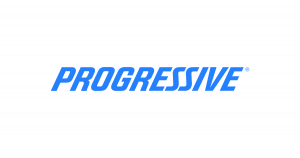Progressive vs. Allstate: What’s the Best Coverage & Rates
Progressive and Allstate are two of the biggest players in the insurance industry, and it’s easy to see why.
Both have a wide variety of coverage options, recognizable advertising campaigns, and a long history of conducting business in the United States.
As you compare Progressive vs. Allstate, you can see that the two companies have a fair amount in common. However, when it comes to customer service, claims satisfaction, and financial strength, no two insurance providers are alike.
When choosing an insurer, it’s important to compare Allstate vs. Progressive by requesting quotes from each provider and researching their ratings and reviews.
To help consumers choose the best insurance company for them, we’ve gathered the following information on each company:
- Equipment
- Monitoring
- Reputation
- Contract
- Price
- Technology Integration
Comparing them based on the following elements:
- Coverage and Benefits
- Pricing and Discounts
- Financial Strength
- Customer Experiences
Progressive vs. Allstate: Coverage Compared

When comparing Progressive and Allstate, drivers will find that many of the coverage options offered by each company are very similar.
Although Progressive provides slightly more coverage options than Allstate, both have a wide range of coverages that includes liability, collision, and comprehensive insurance policies.
Both also offer towing and labor costs and rental reimbursement.
Read more: Allstate vs. State Farm | Auto Insurance Comparison
What Do The Customers Think?
Once customers have created their insurance policies with a representative from either company and determined exactly how much insurance they need, the bulk of contact with their insurance provider will occur during the claims process.
Therefore, much importance is placed on claims when insurance providers are reviewed by market research companies such as J.D. Power.
The J.D. Power Claims Satisfaction Report provides objective ratings of insurance providers to help consumers make an informed auto insurance purchase. The report rates Allstate vs. Progressive and compares them to other well-known insurance companies.
J.D. Power uses three key performance indicator categories to analyze customer satisfaction when determining these rankings:
- Communication
- Ease of Service Interaction
- Timeliness
In J.D. Power’s 2017 Auto Claims Satisfaction Study, Progressive and Allstate both received a 3-out-of-5 rating for overall satisfaction.
Allstate came out just above Nationwide and just below State Farm, while Progressive ranked slightly lower in the study, coming out just below Esurance and above Auto Club of Southern California Insurance Group.
| Overall Satisfaction | Initial Claims Reporting Process | Representative Handling the Claim | Repair Process | Rental Car Process | |
|---|---|---|---|---|---|
| Allstate | 3 out of 5 stars | 3 out of 5 stars | 3 out of 5 stars | 4 out of 5 stars | 3 out of 5 stars |
| Progressive | 3 out of 5 stars | 3 out of 5 stars | 3 out of 5 stars | 3 out of 5 stars | 4 out of 5 stars |
Read more:
- Allstate vs Liberty Mutual Car Insurance Rates
- Progressive vs State Farm: Who has better car insurance?
This chart shows some of the factors that affect policyholders’ views of their insurance company.
Aside from the claims process, other elements can also contribute to a good approval rating, including the purchase experience, the company’s method for responding to inquiries from potential and current customers, how the company communicates with their policyholders, and how it handles complaints.
The J.D. Power auto insurance study gathers information to rate insurance providers in these areas, too. When comparing Progressive and Allstate, Progressive has an overall satisfaction rating of 3 out of 5, which places the company a little higher than Allstate, which received a 2 out of 5.
Progressive received scores of 3 out of 5 in four of the five individual categories and only received a rating of 2 out of 5 in call center representative. Allstate received a 2 out of 5 in most categories, with the exception of local agent and call center representative, both of which received a rating of 3 out of 5.
The California Complaint Ratio Study analyzes complaints received by insurance providers and compares them with the number of open policies each company holds each year. Given that California is the most populous state in the U.S., this study is a good overall indicator of how each company handles complaints across the country.
In this particular study, Allstate is ranked 11th out of 50 providers, while Progressive is ranked 27th. Major providers Geico and Garrison came out ahead of both companies with lower complaint ratios. Liberty Mutual and Nationwide both received higher complaint ratios and were posted below both Progressive and Allstate.
In 2016, Allstate received a total of 50 justified complaints in California. Using an approximate total of 1,978,516 vehicular policies, the company’s complaint ratio is calculated at 2.5 per every 100,000 policies. Progressive’s complaint ratio in 2016 is a bit higher. With a total of seven complaints and an approximate total of 125,602 policies, the company’s complaint ratio comes out at 5.6.
The National Association of Insurance Commissioners also creates a complaint ratio based on justified complaints vs. total annual premiums. In 2016, Allstate’s ratio was 1.03 very close to the national median of 1.00, while Progressive’s was again slightly higher at 1.11.
Comparing Financial Strength
Comparing a company’s financial strength is an important part of researching insurance providers.
When major disasters occur, it’s crucial that a company have the ability to back up its policies and pay out claims reliably.
A comparison of Progressive and Allstate’s financial strength can be done by obtaining credit ratings from one of the five major rating agencies:
- Moody’s
- A.M. Best
- Standard & Poor’s
- Fitch Ratings
- DBRS
Its positive credit ratings verify Allstate’s financial strength. The company has a rating of “Aa3” from Moody’s, which indicates a stable outlook. A Financial Strength Rating (FSR) of “A+” and an Issuer Credit Rating (ICR) of “aa” from A.M. Best mean the company is in great financial standing.
Progressive has an FSR of “a” from A.M. Best. Moody’s has awarded a rating of “A2” to Progressive. All these ratings indicate that both companies have the means to pay a large number of claims should the need arise.
Comparing Pricing and Discounts
The cost of a driver’s insurance premiums depends on a number of factors.
- Driving Infractions
- Geographic Location
- Age
- Gender
…can all influence the cost of insurance.
Just as there are factors that can increase the price of a driver’s insurance, many elements can also contribute to a lower insurance rate.
Even though some insurance providers don’t offer discounted rates, most companies give price breaks of some kind or other.
When comparing Progressive and Allstate, drivers will notice a variety of discounts for drivers who comply with certain payment terms or have clean records.
Here’s a comparison of the discounts offered by each company.
| Progressive | Allstate | |
|---|---|---|
| Multiple Vehicle | Yes | No |
| Multiple Policy | Yes | Yes |
| Vehicle Safety | Yes | Yes |
| New Vehicle | No | Yes |
| Teen Driver | Yes | No |
| Good Student | Yes | Yes |
| Student Away From Home | Yes | Yes |
| Completed Driver Training Course | Yes | Yes |
| Completed Safe Driving Course | Yes | No |
| Safe Driver | Yes | Yes |
| Homeowner | Yes | No |
| Length of Membership | Yes | Yes |
| Sign Up Online | Yes | No |
| Receive Online Quote | Yes | No |
| Paperless | Yes | Yes |
| Pay In Full | Yes | Yes |
| Automatic Payment | Yes | Yes |
| Anti-Theft | Yes | Yes |
In Conclusion
The above information comparing Progressive vs. Allstate should help you make an informed decision when you choose your insurance carrier.
Use the details in the reviews to contrast each insurer and determine which offers the best policies, prices, and discounts for your individual needs.



